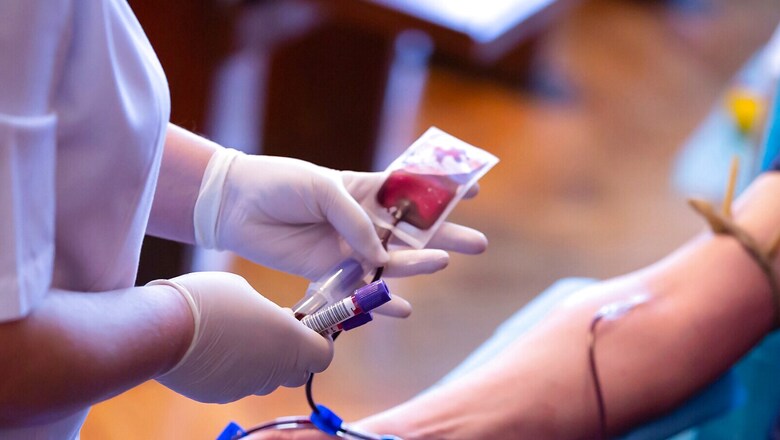
views
As Covid-19 seems to be fading away, India’s first company to manufacture RT-PCR test kits is gearing up to take on the next goal, the top official of Mylab Discovery Solutions told News18.com in an exclusive interaction.
The Pune-based biotech company – that became the first Indian firm to make and sell RT-PCR testing kits and Covid home testing kits – is aggressively pushing the Indian government and private players for adopting the safest blood testing method: nucleic acid amplification testing (NAT).
It is the only Indian company that is approved to manufacture NAT technology. Till 2019, there were only two manufacturers of NAT across the globe. Mylab became the third, and the first in India.
Despite the availability of the technology, NAT is not yet a mandatory test for screening blood units. According to a study published in the International Journal of Contemporary Medical Research in 2019, only around 2% of blood banks in our country are doing NAT and approximately 7% of all collected blood units are NAT tested.
The data shows that highly risky blood transfusions take place all across India despite the availability of technology to provide safer alternatives.
Sample this: In May, the National Human Rights Commission (NHRC) lashed out at the government of Maharashtra after four children tested positive for HIV, and one of them died following a blood transfusion for treatment of thalassemia – a condition in which life-long blood transfusions are required – for which NAT-tested blood had to be transfused. But in the absence of the facility, the contaminated blood was given.
The NHRC issued notices to the respective government departments.
It is one of the many incidents reported across India in the past several years. If NAT-tested blood would have been transfused, such an incident could have been easily averted.
What is NAT testing and why is it important?
NAT is a highly sensitive method of testing blood that detects major and life-threatening viruses which are transmitted through blood such as hepatitis C (HCV), hepatitis B, human immunodeficiency virus (HIV-1), malaria, and syphilis in blood samples.
Mylab’s testing technique named ‘NATSpert’ is claimed to give highly sensitive and specific real‑time PCR technology for testing individual donors, blood products, or suspected individuals where multiple analytes can be detected and identified in a single test. It improves the workflow turnaround time and sensitivity compared to the two currently available commercial kits.
“Our technology is based on PCR. It is more cost-effective than other available NAT kits,” Gautam Wankhede, director of medical affairs at Mylab Discovery Solutions, told News18.com.
The company, which also makes testing kits for HIV, hepatitis B, and hepatitis C among other diseases, has been in “talks with the various stakeholders in the government and the private sector to adopt its affordable technology for testing blood across India for safer blood transfusions”, Wankhede said.
Ensuring blood safety in a developing country like India where the seroprevalence of transfusion-transmitted infections (TTI) is high is a challenging task.
“Some viruses, such as hepatitis B, have a longer incubation period of 40 to 50 days. When testing via traditional methods, the machines will fail to detect the presence whereas NAT will find out such presence,” he said.
“Approximately 33 countries have implemented NAT for HIV and 27 have implemented it for hepatitis B,” said the study quoted above while adding that “NAT takes care of the dynamics of the window period of viruses. The estimated reduction in window period utilising NAT for HIV is from 22 to 11 days, for hepatitis B is from 59 to 25-30 days and for hepatitis C is from 70 to 12 days.”
The current mandatory screening strategy in India does not address the problem of critical window period detection. Even with the most sensitive, the newest generation of serological tests a considerable residual risk of infection remains.
Price of NAT testing at least 40% cheaper
The Indian firm claims to offer the technology at a much lesser price than the other two multinationals.
“Our technology is based on PCR. It is at least 40% cheaper than the close competition,” Wankhede said.
Today well-funded government hospitals such as All India Institute of Medical Sciences, New Delhi, or Postgraduate Institute of Medical Education and Research, Chandigarh, are testing blood through NAT whereas other smaller banks use the traditional methods, he said.
“We are aggressively pushing the blood banks and speaking with stakeholders in both the government and private sectors to adopt this technology across blood banks and hospitals in India,” Wankhede added. “If taken, it will be one of the major steps in the healthcare sector.”
Read all the Latest News, Breaking News, watch Top Videos and Live TV here.




















Comments
0 comment